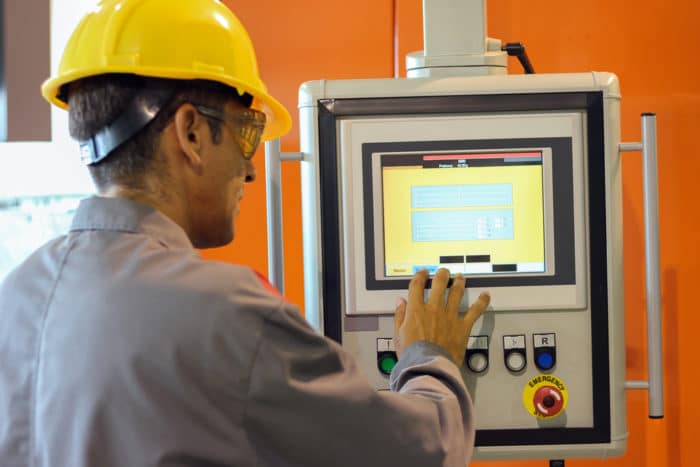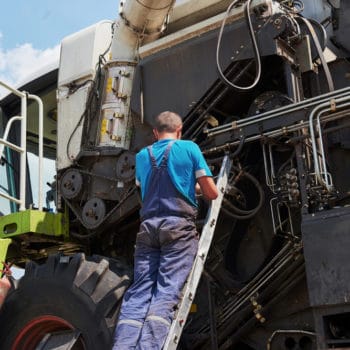Why We Love It
-
$42,120Potential Avg. Salary
-
9.8%Job Growth Rate
-
Growing DemandJob Outlook
-
Dependable Daily WorkloadCareer Attribute
A CNC (computer numerical control) machinist is in charge of computer-operated machinery to create mass produced precision tools and parts, for the engineering and manufacturing industries.
Recommended Schools
What is a CNC Machinist?
Duties
A CNC machinist performs important functions that are highlighted below:
- Efficiently operating CNC machines to shape different metal parts as per requirements in technical drawings, verbal instructions, tooling prints, etc.
- Coordinate with other departments through shared schedules and professional discussions on standard fixtures to be utilised, type of parts to be machined, etc.
- Accurately operate machinery to align parts, update the program for the machine depending on job specifications, and monitor machine settings.
- Ensure that all specifications are followed by closely assessing operations such as cutting, drilling, milling, pocketing and tapping.
- Have an established protocol for reviewing preventive maintenance logs to ensure requirements are fulfilled according to instructions provided by the manufacturer.
Day In The Life
A CNC machinist spends most of his or her time developing and running various programs that run machines to perform essential functions for mass produced goods, e.g. shaping and cutting materials to create industrial commodities like automobiles and airplanes. This role also involves working with a wide range of materials – wood, metal, plastic and composites. In your average day, you can expect to complete machining tasks that will produce large quantities of one machine part before moving on to the next.
Once a CNC machinery has been programmed successfully with details of the design required, the CNC machinist is tasked with the job of making certain that the machinery is running in top shape, perform preventative maintenance and undertake repairs as necessary. Using cutting edge tools like 3D computer mock-ups, blueprints, lathes and cutting machines, the CNC machinist ensures that every manufactured part is precisely rendered as per quality and technical guidelines.
Work Schedule
A CNC machinist works for approximately 37 – 40 hours every week full-time. However, you may also be called in to cover shifts that span the weekend, nights, and evenings. The place of work is usually a workshop, warehouse or factory where your job is to seamlessly operate machinery through programming. To minimize dangers associated with the job, you may have to wear protective gear like goggles, boots and overalls.
Growth Of The Job
According to the Bureau of Labor Statistics, a growth of 10% is predicted between the decade 2014-2024, marking great improvements in the field of technology. There will be plenty of job opportunities for individuals willing to join employers as entry-level machinists. Aspiring CNC machinists that have previously worked with lathe, milling and manual machines will find promising roles in the industry. Preference is given to those with an expertise in reading blueprints and basic computer applications, like Microsoft Office.
With adequate experience and dedicated training, it is possible for a CNC machinist to transition into a more senior role. You might also find work with relevant sectors such as quality inspection or engineering.
Typical Employers
A CNC machinist usually works with large scale industries like power, manufacturing, aerospace and automotive.
Recommended Schools
How To Become a CNC Machinist
The minimum qualification to become a CNC machinist is holding at least a high school diploma, to start with entry-level positions that give training on the job. At an early stage, students should pay attention to relevant concepts in class like geometry, computer operations, tools, welding and reading blueprints.
To enter more senior positions in the industry, one has to eventually complete an apprenticeship program, that provides a blend of classroom and hands-on training. This apprenticeship is often provided by vocational schools, universities, colleges, vocational schools and machinists’ unions. While most employers today include training as part of the work process, having experience from the past when looking for new employment, can push you towards a better role.
Another way you can become a successful CNC machinist includes completing a certificate program that will qualify a graduate for employment in the industry. Certifications are more focused on content, compared to an apprenticeship. Aspiring candidates learn valuable skills like operating hand tools correctly, understanding technical drawing or blueprints, programming and using the CNC equipment effectively, etc. The completion of a certificate program from a prestigious institution like National Institute for Metalworking Skills (NIMS), is beneficial to long term career goals. While it is not required by employers, a CNC Machinist that possesses an associate’s degree is often chosen for their technical expertise versus others in the market.
CNC Machinist Salary Data
We’ve provided you the following to learn more about this career. The salary and growth data on this page comes from recently published Bureau of Labor Statistics data while the recommendations and editorial content are based on our research.
National Anual Salary
Low Range
$31,990Average
$42,120High Range
$61,290National Hourly Wage
Low Range
$15/hrAverage
$20/hrHigh Range
$29/hrHow do CNC Machinist salaries stack up to other jobs across the country? Based on the latest jobs data nationwide, CNC Machinist's can make an average annual salary of $42,120, or $20 per hour. This makes it an Above Average Salary. On the lower end, they can make $31,990 or $15 per hour, perhaps when just starting out or based on the state you live in.
Salary Rankings And Facts
#492 Nationally for All Careers
Highest Education Among CNC Machinists
- 0.1% Doctorate
- 0.4% Masters
- 3.3% Bachelors
- 11.2% Associates
- 27.6% College
- 47.6% High School
- 9.8% Less than High School
Job Growth Projections and Forecast
2014 Total Jobs
399,7002024 Est. Jobs
438,900Job Growth Rate
9.8%Est. New Jobs
39,200How does CNC Machinist job growth stack up to other jobs across the country? By 2024, there will be a change of 39,200 jobs for a total of 438,900 people employed in the career nationwide. This is a 9.8% change in growth over the next ten years, giving the career a growth rate nationwide of Below Average.
Growth Rankings And Facts
#205 Nationally for All Careers
What Companies Employ The Most CNC Machinists
| Industry | Current Jobs | New Jobs Needed | % Increase |
|---|---|---|---|
| Machine shops | 86,500 | 9,100 | 9% |
| Metalworking machinery manufacturing | 26,600 | 1,400 | 1% |
| Temporary help services | 21,400 | 6,100 | 6% |











